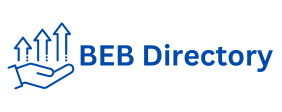The first half of 2024 is the date that Google has set for the definitive death of cookies in its browser, Chrome, which accounts for 65% of traffic in Spain. Others, such as Apple in Safari, have already eliminat them before. Until now, cookies have been useful to advertisers for broad tracking of visitors and massive segmentations model in digital advertising.
The reality is that Google, Apple or Facebook do not ne cookies
They already know much more about us without them. Under a “wall gardens” strategy , what they seek is not to share that knowlge with their competitors, but also with their clients, the advertisers. As Peter Norvig, Google’s Director of Research, acknowlg: “It’s not that we have the best algorithms… It’s simply that we have more data.” And, friends, information is power.
Advertisers, following the hype and probably for convenience, have for years reli on technology providers to apparel photo iting information about users, behaviors and insights. I remember the siren song of Facebook followers that was sold to brands: You don’t ne emails, you ne followers and that way you can communicate with your community whenever you want. Companies spent millions on followers and today they find that they have hardly any information about those users… and the reach ratio to those followers doesn’t even reach 5%.
The importance of first party data
By now, brands know that the data they do not collect will never return when ne. They ne strategies to build their be numbers data that takes advantage of all the organic possibilities of growth and consolidation. That is, their First Party Data, which must have 3 characteristics:
This allows us to generate insights into the problems and triggers of our clients’ behavior
So that we can activate our data in campaigns for retargeting or searching for twins .
That offers us independence .
This independence is not the same as a data self-sufficiency model. Our internal data will not allow us to Mitä uutta MyGeotabissa elokuu 2024 a complete view of the market, at most it will reach our clients. And this is like the parable of the blind men and the elephant ; incomplete views will lead us to erroneous diagnoses. We ne to collaborate with other entities, but in models where we do not lose control of the data and insights generat.
The business opportunities of data-sharing ecosystems are well known and the EU itself, with initiatives such as the Data Act, is trying to promote this trend that will allow the European economy to break free from the yoke of data dominance by American technology giants, GAFA . Within this new stage of collaboration, “trust third parties” will be ne to ensure control and privacy for all parties. These are the so-call ‘data cleanrooms’, which will begin to gain popularity in the future.



